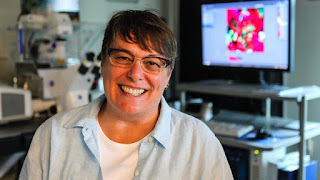The Great Minds we lost in 2018 | Knudge Factory
The year 2018 provides a red carpet warm welcome to many scientists, researchers, innovators, inventors. Ranging from neanderthal cave execution to SpaceX Mars orbitary mission, all are a leap bound to mankind. At the same time, the year 2018 took many great minds from ours. The contribution paid by them to the human race is a massive one which can't be able to describe in some words. Here are the few contributors to science that we lost in 2018 and why they will be surely missed.
1. Stephen Hawkings:
Born in oxford, in the UK, Hawking's intelligence was clear from an early age. His father asked him to study medicine. But, at the age of 17, he accepted a scholarship and studied Physics in his hometown at Oxford University. After he graduated, he continued his study in cosmology at Cambridge where he made his greatest contributions to our understanding of the universe. His research mainly focused on the black holes. Black holes are the areas in the universe with such gravitational pull, beyond certain point no one would come out of that. That is, no one could escape. Many scientists don't know and many put forth many theories which are actually not compatible to the science in many cases. Hawking showed that the black holes emit certain type of energy which is, now, known as Hawking Radiation.
One of the weird part of the quantum mechanics is there exists a two types particles, one is matter and other anti matter which has the opposite properties. Normally, these pairs and destroys each other because that is normally happens when the matter and anti matter are come into contact. Hawking showed that this happens at the edge of the black holes. He proposed that anti matter particle normally gets inside the black hole and pairs with another matter particles and annihilates itself(destroy). And because of this black holes loses tiny amount of energy, shrink and lose it's mass and emits certain amount of Hawking radiation.
One of the coolest thing of this discovery is that the General Relativity and Quantum mechanics, which don't usually go together. General Relativity is used to explain the very massive and very fast and quantum mechanics is used to explain super-tiny particles. Hawking attempted to combine these two theories into real and that is called Theory of Everything. He attempted but he was not failure because the theory is hyper large. Hawking died on March 14 due to ALS(Amyotrophic Lateral Sclerosis). This disease paralyzed him over the course of life. He died at the age of 76. Besides his scientific discoveries, he also wrote several science books, gave countless public lectures by using his famous text to speech translator. By appearing on the simpsons, he popularize the science that no one can could. RIP Great Mind.
2. Ruth Gates:
This year science also losts Ruth Gates, a marine biologist who spent much of her career working to save the coral reefs. Gates was obsessed with corals at an early age. A passion that eventually led her to became the director of the Hawai'i institute of marine biology and the first women to be elected as the president of the international society for reef studies. By appling the molecular technologies discovered in 1990s, she made important discoveries between the corals and algae and how rising sea temperatures can break that communication. She not only helps us to understand the corals but also helps us to protect the corals. Gates died on October 25 from surgical complications, at the age of 56. But the coral breeding projects and her efforts to save the marine life will go on.
3. Koko:
Wildlife on land lost their important ambassdor in this year. In june, in the field of animal behaviour and communications faces it's biggest loss, Koko - The Gorilla. It may be pretty unconventional to be included her on the list. She is not a scientist or human but she will completly rewrote many of our ideas in animal intelligence. Born in San Francisco, in 1971, Koko quickly mastered in various skill through his mentor Patterson. She could sign more than 1000 words and understood more than 2000 words of verbal english. This queen graced the cover national geographic twice. Because of the Patterson's friendly relationship with Koko, we could make new discoveries about gorilla's cognitive series just by asking them. For example, One day Patterson asked,
Where do animals go when they die?
Koko replied, A comfortable hole.
With her home in San Francisco zoo and Patterson by her side Koko was comfortable throughout her life and also in death and she died in her sleep. And now we say, Good bye koko.
Thank you Leo for these info..










Great infos about great minds.....keep going
ReplyDeleteWaiting for more info
This comment has been removed by the author.
DeleteSalute to these greatest minds...Kudos to the great mind which enlisted them at the right hour...
ReplyDeletetq sir
ReplyDelete